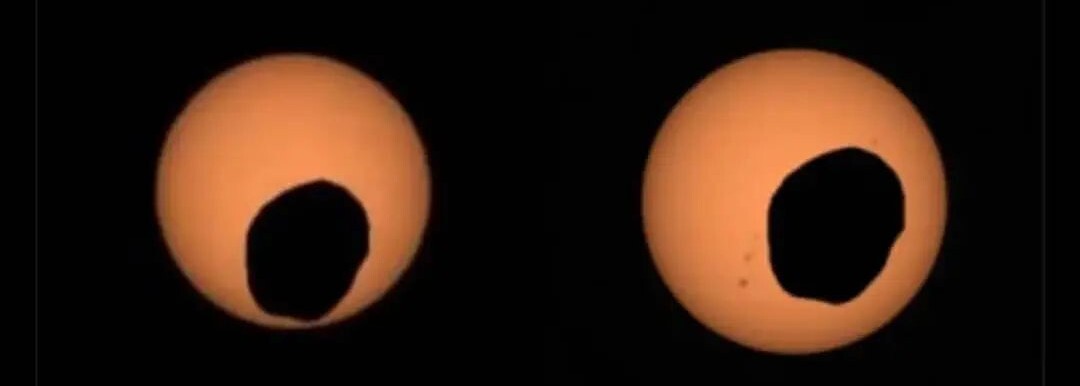Oh, holy hell, I just uncontrollably giggled at that for so long, my chest hurts. I sent it to my only group of friends, and it looks even better in smaller thumbnail form. Good gracious.

I mean she’s not wrong. Isn’t it, astronomically speaking, pretty rare that Earth has a moon that appears exactly the same relative size as its host star?
As far as we know it’s extremely rare and a bit of a mystery how it came to be that way. One theory is that it was the result of a collision with another protoplanet in the early formation of the solar system.
But it isn’t a mystery at all. The moon is moving away from us. For billions of years the moon’s apparent size was larger than the sun. For billions of years later it will appear smaller. It’s simply a lucky coincidence we live in this moment in time, in that regard.
The “mystery” I was referring to was how we came to have such a large moon to begin with. It’s very unusual, and moons on other terrestrial planets are much smaller and probably formed through completely different ways than earth’s moon.
That isn’t clear at all and I’m not even sure I agree, regardless. Hydrostatic equilibrium is a regularly occuring thing. No, I’m not looking up how regular. The Universe is mind-bogglingly enormous and everything is unusual. Have a good day.
I think Mars eclipses might be better. It means they have googly eyes, and googly eyes make everything funnier.
Phobos is this big and still not round? Uh, what was the name, the size where stone behaves like a liquid. Well, Phobos doesn’t have that yet?
I believe you are looking for hydrostatic equilibrium. There don’t seem to be good answers for this online, but according to Robert Black on this Quora post:
There isn’t a minimium per se but the generally accepted number for a mass to form into a sphere under its own gravity is 1/10,000th the mass of the Earth or 600 quintillion kg. As for size, it really depends on the composition of the body. The numbers are generally accepted to have a diameter of about 600km for a rocky body.
A quintillion is 1 x 10 to the 18th and Phobos has a mass of 1.0659 x 10 to the 16th kilograms and a diameter of 22 kilometers.
Yes that, thanks!
👀
NUMBER ONE!
Idk looks good to me
🌖🌔




